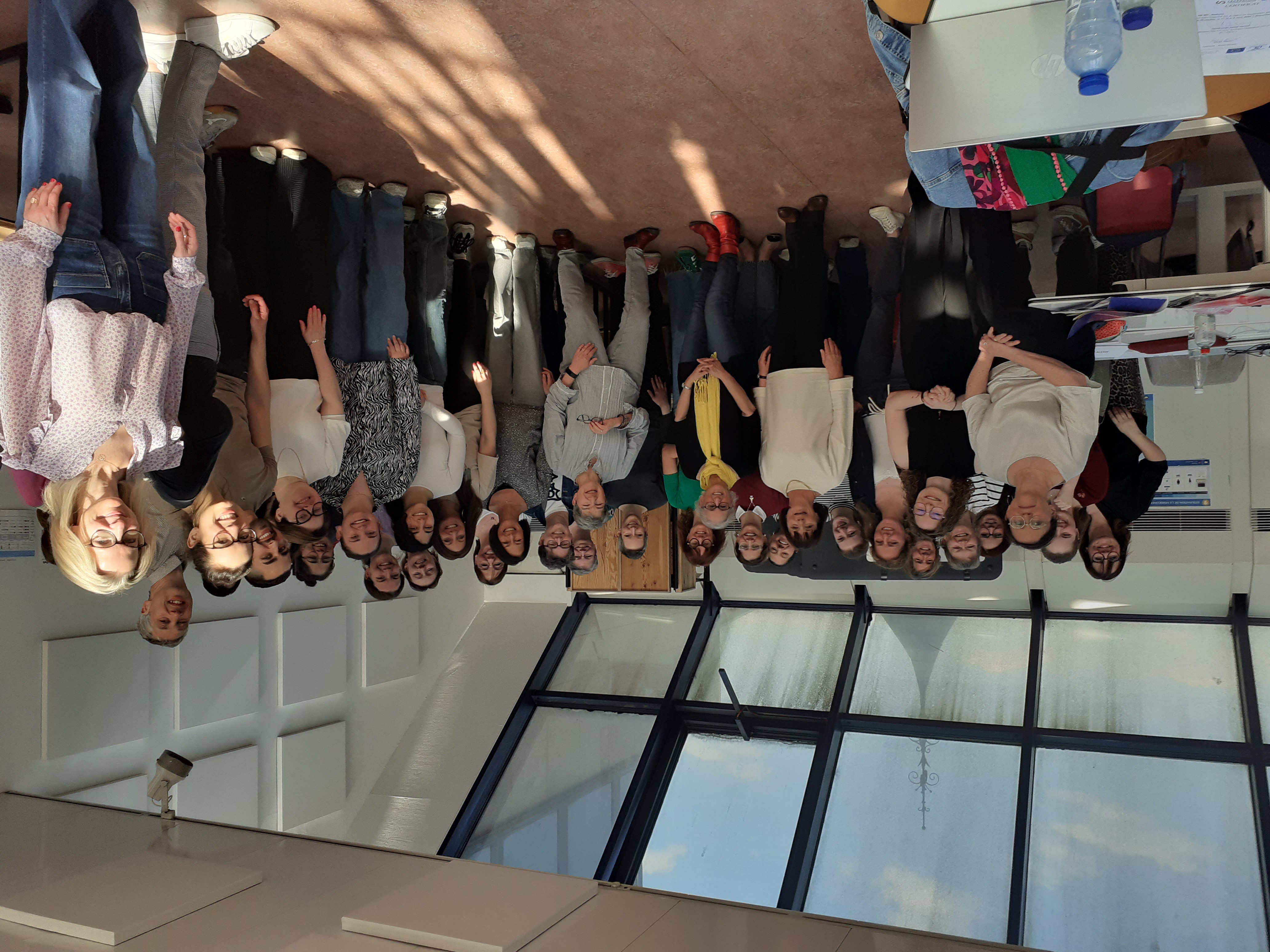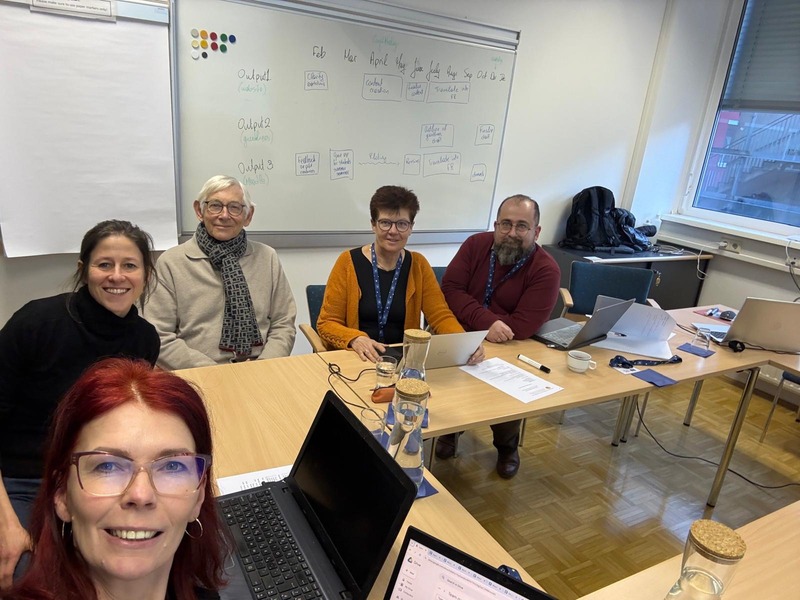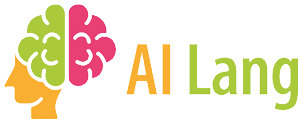Acticles
08.04.2025
National Training Workshop “Using ICT in support of language teaching and learning (ICT-REV)” (1-2 April 2025, Brussels, Belgium)
ICT in language teaching and learning and beyond!
For many years now, teaching professionals have been aware of the use of ICT in teaching practices. This awareness has grown still further since the Covid pandemic, sometimes leaving good teachers at a loss as they seek to retrain or even leave the profession prematurely. A training workshop of the kind offered by ICT-REV has numerous benefits, which have been fully borne out by the success of this recent workshop in Brussels.
Through its training and consultancy activities, the ECML offers a wide range of opportunities for high-quality training to teaching professionals. Its workshops, based on the practical use of pedagogical and didactic tools, enhance the professionalism of teachers who all too often feel left alone when it comes to designing their courses to meet local standards. The professional development and pedagogical skills of teachers are an asset in fostering education systems that encourage the appropriate use of tools in their daily context. There are many AI-related tools, but their appropriate use often remains a mystery and can prove discouraging.
This training encourages a diversification of approaches and a deepening of students' learning. By making it dynamic and interactive it captures their attention and promotes concentration. Young people today are very often connected but often do not know how to make intelligent use of artificial intelligence tools. Their teachers can be destabilised by the huge range of tools available, how to use them and how to select wisely from what is available online.
Another advantage is that educational teams with similar backgrounds can meet up, not only to exchange ideas and experiences, but also to collectively build on existing good practice. Often, a professional network is created through the establishment of useful connections for the development of teaching tools and materials.
The participants systematically highlight the dynamism and enthusiasm of the moderators, who make this training lively, interactive and varied, and greatly appreciate the opportunity to benefit from their expertise.
Karine Dekeukelaere, local coordinator
French version:
Les TIC dans l’enseignement et l’apprentissage des langues et au-delà !
Depuis, de nombreuses années, les professionnel·le·s de l’enseignement sont sensibilisés à l’utilisation des TIC dans leurs pratiques enseignantes. Depuis la crise Covid, cette conscientisation s’est encore accentuée en laissant parfois de bons pédagogues désemparés cherchant à se reconvertir ou à quitter la fonction prématurément. Un tel atelier de formation a plusieurs avantages et le succès constaté en fait la démonstration.
Le CELV nous offre chaque fois la possibilité de proposer une formation de grande qualité aux professionnel·le·s de l’enseignement. Ces ateliers, basés sur l’usage pratique d’outils pédagogiques et didactiques, permettent de renforcer le professionnalisme des enseignant·e·s qui se sentent trop souvent livré·e·s à eux-mêmes dans la confection de leurs cours pour qu’ils correspondent aux référentiels locaux. Le développement professionnel et celui des compétences pédagogiques des enseignant·e·s sont un atout pour promouvoir des systèmes éducatifs encourageant un usage adéquat d’outils dans leur contexte quotidien. Les outils liés à IA sont multiples, mais leur utilisation adaptée reste souvent un mystère, parfois décourageant.
Cette formation invite à diversifier les approches et à approfondir les apprentissages des élèves en cherchant à rendre ceux-ci dynamiques et interactif·ve·s pour capter l’attention et la concentration de ces apprenant·e·s. Aujourd’hui, les jeunes sont très souvent connecté·e·s, mais ne connaissent pas, dans la majorité des cas, comment faire un usage intelligent d’outils de l’IA. Leurs professeur·e·s peuvent être déstabilisé·e·s devant la masse inconnue d'outils, leur usage et le tri correct dans l’offre en ligne.
La rencontre entre équipes éducatives de mêmes profils est un autre avantage permettant non seulement d’échanger des idées, des expériences, mais aussi d’enrichir collectivement les bonnes pratiques existantes. Souvent, un réseau professionnel se crée par la mise en place de connexions utiles pour le développement d’outils et de matériaux didactiques.
Les participant·e·s soulignent systématiquement le dynamisme et l’enthousiasme des formateur·rice·s qui rendent cette formation vivante, interactive et variée avec la possibilité de profiter de leur expertise.
Karine Dekeukelaere, coordinatrice locale

17.02.2025
Second AI-Lang expert meeting (January 2025)
During the AI Lang team meeting in Graz on 27–28 January 2025 it was decided that Achilleas Kostoulas will take on the project coordination, as Merilyn Meristo will move on to a challenging leadership position in another research project. Also in connection with this restructuring, Aleksandra Ljalikova has been invited to join our team as Communications Officer. We are saddened by the departure of Prof. Meristo, and we are grateful for the leadership and guidance she provided over the last year. Equally, we are delighted to be joined by Prof. Ljalikova, who has impressive experience in using digital tools and AI in language education.
During the meeting, we worked together to refine and improve the structure and envisaged content of our outputs. We expect to have an update on the project website in the coming weeks. Looking ahead into the future, we are preparing to launch a Moodle course that will help teachers and teacher educators integrate AI into their teaching. Also in preparation is a draft set of guidelines for the meaningful and ethical use of AI in language education.
Another development that we are looking forward to is the upcoming workshop, which will bring together AI experts on 25–26 November 2025. We have already laid down important groundwork for preparing the workshop, and we are looking forward to welcoming participants from across Europe to Graz!
Achilleas Kostoulas, project coordinator
• ECML project website “AI for language education” (2024-27) (available in English and French): www.ecml.at/AI-lang
 Do you wish to participate in the workshop?
Do you wish to participate in the workshop?
Individuals with a special interest and professional background in the topic of this particular project are invited to take up contact with the ECML National Nominating Authority in their country so that they can be considered for participation in the corresponding project workshop.


23.01.2025
AI for language education: project developments 2024

Since the beginning of 2024, the AI for language education (AILang) project has been actively engaged in exploring and documenting how language teachers use AI tools to support teaching and learning.
In our kick-off expert meeting, which took place on 18 and 19 March, the project team developed a multilingual questionnaire to map how AI is being used across national settings, what affordances teachers are aware of, and what apprehensions they have regarding the effective and ethical use of AI in language education. This survey has now been completed, and we would like to thank all participants for their time and insights. The initial findings of the survey suggest that AI resources were widely used: over half the respondents reported having used AI tools to create materials, organise lesson plans, teach all language skills and improve students’ vocabulary, grammar and pronunciation. Some examples they provided included:
- generating text for classroom use
- creating comprehension questions for reading or listening exercises
- creating different versions of learning and assessment tasks
- rephrasing instructions (e.g., “This helps me to have a different perspective on what I write”)
- generating images that correspond to a description or text
That said, many teachers reported challenges in prompt generation, finding ways to integrate creativity into AI-assisted language education, and avoiding plagiarism. Concerns were also raised about training and the cost of AI tools. The teachers also reported fears regarding being replaced, or language education becoming obsolete, as well as the perceived decline in students’ production skills.
Based on the findings from this survey, the AILang team is currently working on developing resources that can help educate teachers about AI-assisted language education. To that end, we have been experimenting with various AI resources (e.g., CoPilot, ChatGTP, Claude, DeepL, Diff.it, etc.) and exploring their potential and limitations. Our insights are used to produce teacher education materials that can help to:
- familiarise teachers with AI resources and encourage them to experiment with them
- develop their capacity to meaningfully integrate multiple AI tools into their teaching
- encourage reflection on the pedagogically effective and ethical use of AI technology in language education.
An online learning space has already been created to host these learning resources, and we are currently in the process of populating it with resources.
We also organised an online event for teachers to exchange ideas and good practices regarding the use of AI in their language classrooms. Our first BarCamp event, on 5 November 2024, brought together teachers from Armenia, Denmark, Egypt, Estonia, France, Georgia, Greece, Italy, Morocco, North Macedonia, Serbia and Sweden. In the focused discussions that took place participants shared their insights from the use of AI tools, presented innovative teaching ideas, discussed difficulties they have faced, and received peer feedback on their ideas and practices. We are in the process of analysing the insights from the BarCamp and will follow up with more information about it shortly.
Further ahead, we are also looking forward to our next international workshop, which will take place in Graz in November 2025. This will be an opportunity to present our ongoing work and discuss how it can be made more useful for language educators in diverse settings. If you are interested in participating, you can follow this space (www.ecml.at/AI-lang) for updates, and liaise with the National Nominating Authorities in your country for details.
Despite being launched just this year, the AILang project has already made considerable strides in understanding the current applications of AI in language education. These initial achievements mark only the beginning of the project's broader goals. Looking ahead, AILang is poised to launch new initiatives aimed at empowering educators with AI-driven tools and insights, transforming the future of language learning.
Merilyn Meristo, coordinator of AILang
• ECML project website “AI for language education” (2024-27) (available in English and French) :
www.ecml.at/AI-lang